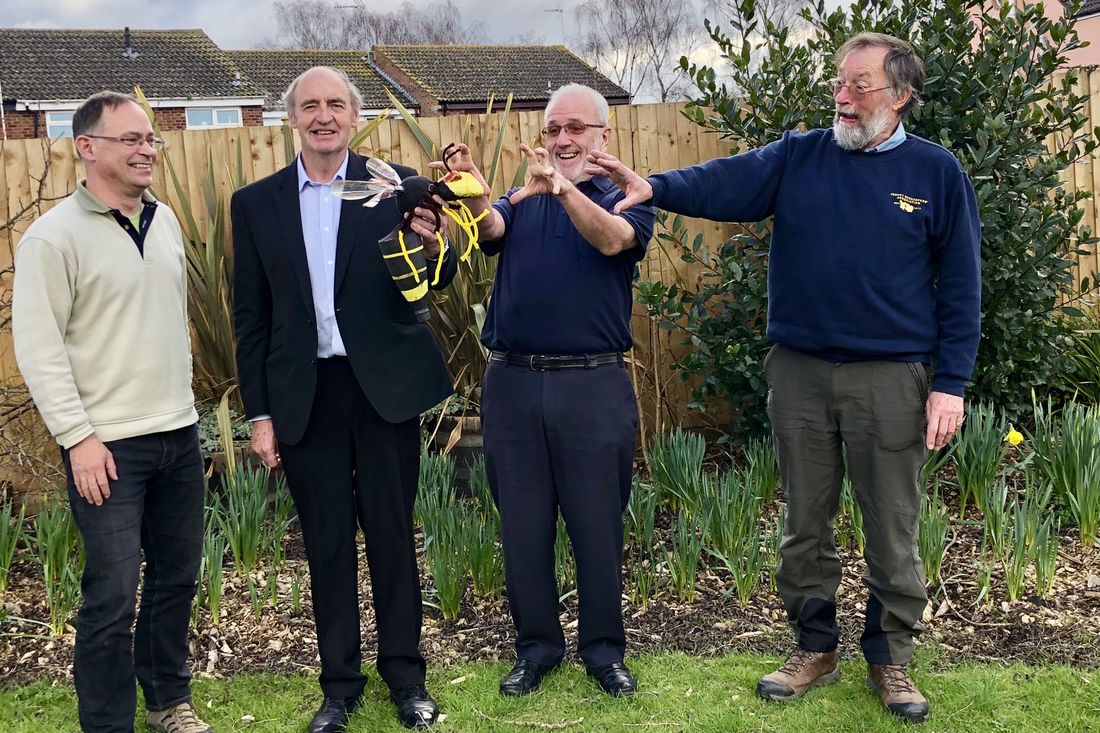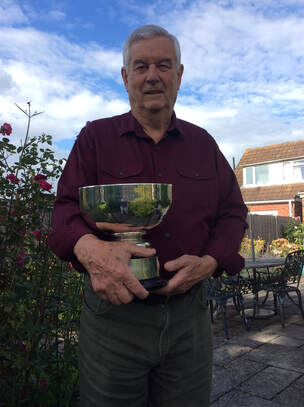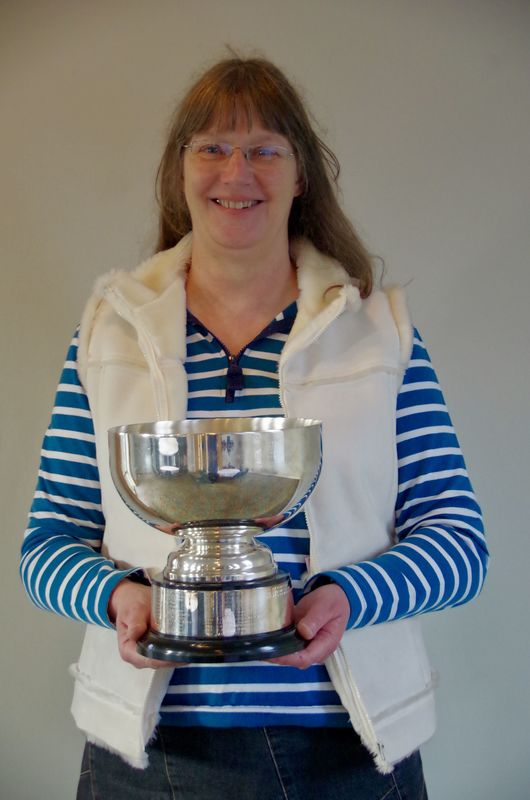|
Beekeepers from across the South West started the season at an equipment auction held in Taunton on Sunday (March 25).
Eager to get prepared and grab a bargain, they bid for more than 120 lots during a two-hour sale run by Taunton Beekeepers. Auctioneer Chris Harries, in his 32nd year presiding on the podium, said: “At this time of the year beekeepers are getting ready for the coming season. “There was some strong interest in complete hives and we sold scores of hive parts and useful equipment,” he said. The lots were varied and included top bar hives, equipment to extract and bottle honey, decorative honey pots, protective suits, back copies of beekeeping magazines and an observation hive. Peter Maben, Chair of Taunton Beekeepers, commented: "Once again, our annual auction was extremely well supported by buyers, sellers and a great team of volunteers led by our auctioneer Chris.” The auction raised hundreds of pounds for Taunton Beekeepers to spend on educational activities for its members and to promote beekeeping at local schools and events. ends Notes to editors:
The winner of Somerset Beekeepers’ most prestigious honour – the West Country Honey Farms Award – has been presented to Bridget Knutson from Cheddar.
Her outstanding contribution to the craft was recognised by fellow beekeepers at their annual meeting held at Wedmore on Saturday (March 10). Judging panel chairman Milns Priscott said in his citation that she was an active member of the beekeeping community at both local and national level. “Bridget has demonstrated her ability as a beekeeper to a very high standard. She has set new bench marks for the quality of her exhibits at honey shows and has always been generous with her support to help beekeepers to extend their knowledge,” he said. She is Chair of the Wedmore and Cheddar Division, manages the visual aid library for the British Beekeepers’ Association (BBKA) and teaches and mentors on local beginners, improvers and specialist courses. “If Bridget did not exist, we would have to invent her! The quantity, quality and level of contribution to beekeeping in Somerset is outstanding, and an example to us all,” he added. Also, she is Somerset Beekeepers’ yearbook editor and exams secretary and has passed all BBKA theory modules and practical exams putting her one step away from becoming a master beekeeper. Somerset Beekeepers’ Association works to advance the craft of apiculture within its membership and to promote general awareness and understanding of honeybees. For more visit www.somersetbeekeepers.org.uk Ends Pic cap: Bridget Knutson with the West Country Honey Farms Award rose bowl.  Asian hornet experts briefed the South West Beekeepers’ Forum and posed outside the venue with an outsize model of the invasive insect. Pictured are, from left to right, Dr Pete Kennedy, a research fellow at the University of Exeter; North Devon beekeeper Martyn Hocking, who discovered Asian hornets in his apiary last year; South West Beekeepers’ Forum Chairman Peter Darley; beekeeper Bob Hogge from Jersey where Asian hornets established within a year. Beekeepers in the South West are being urged to prepare for more sightings of the latest threat to honeybees and pollinators – the highly destructive Asian hornet.
Experts have been briefing the South West Beekeepers’ Forum (SWBKF), which represents around 10,000 beekeepers. Latest research shows the speed with which Asian hornets are spreading in Europe destroying honeybee colonies and putting a critical strain on other insects vital to local ecosystems. Dr Pete Kennedy, a research fellow at the University of Exeter, warned that in 10 years Asian hornets could be widespread throughout the South West and Wales if left unchecked; in 20 years most of England would be affected. He presented the latest findings from a government-funded project which attached specially-designed tags to hornets in Jersey and France to test tracking systems. These techniques are used to track hornets back to their nests so professional teams can quickly dispose of them. SWBKF Chairman Peter Darley, from Poole, said: “The Asian hornet is the next big test of British bees and beekeepers.” He urged beekeepers, wildlife groups and the public to all play their part in detecting the insect and reporting it to the Great Britain Non-Native Species Secretariat. “One of the difficulties with the Asian hornet is that it can be imported anywhere in the country on transport from France and Spain and that’s what we have to be so careful about.” He called on lorry drivers and cross Channel ferry passengers to carefully check their vehicles in the summer in case they were unwittingly returning to the UK with an Asian hornet. Jersey beekeeper Bob Hogge described how the invasive insect arrived on the island two years ago and had spread rapidly. Beekeepers were working with the Channel Islands’ government to hunt down and eradicate nests and were developing new tracking techniques. The most recent sighting in the UK was in Woolacombe, Devon, by beekeeper Martyn Hocking, who described the shock of making “a most unexpected and unwelcome discovery”. “As a result of what happened in my apiary, I would like to see beekeeper action teams set up to investigate possible sightings and support individual beekeepers,” he said. South West Regional Bee Inspector, Simon Jones, said rapid reporting could make all the difference between eradication and widespread establishment and encouraged all beekeepers to know how to spot the insect. Asian hornets are slightly smaller than native hornets, have a distinctive black/dark brown thorax; brown abdominal segments with the fourth segment almost entirely yellow-orange, brown legs with yellow ends, a black head and an orange-yellow face. Beekeeping associations in the South West are drawing up ‘battle plans’ ahead of the coming season. Ends |
Archives
September 2023
Categories
All
|
Somerset Beekeepers Association Charity © 2021 Registered CIO Charity 1206483
Affiliated to the British Beekeepers Association
Click here to view our Privacy Policy
Affiliated to the British Beekeepers Association
Click here to view our Privacy Policy


 RSS Feed
RSS Feed
